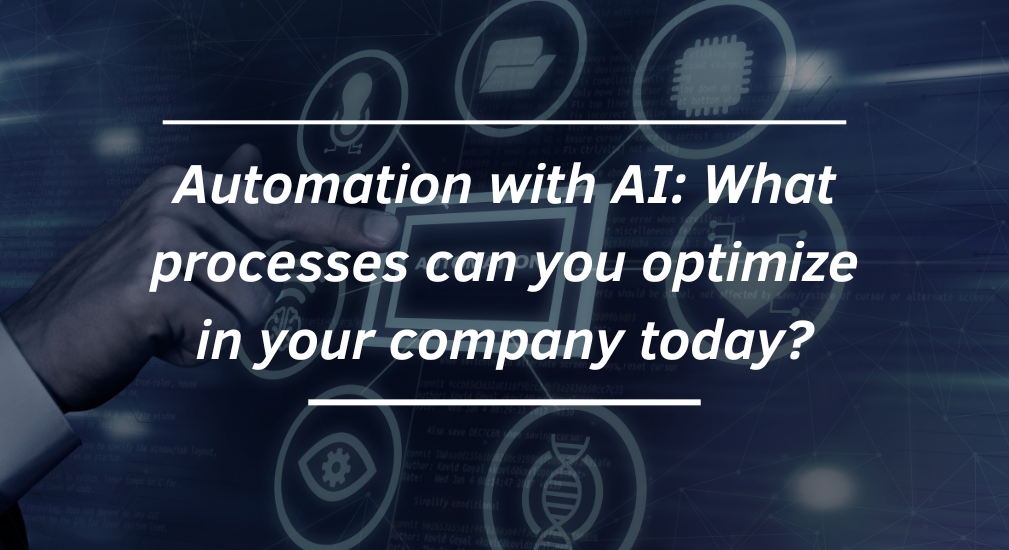In 2025, AI-powered automation is revolutionizing the way companies operate. By integrating artificial intelligence into core business processes, organizations of all sizes are optimizing workflows, cutting costs, and unlocking higher efficiency. Whether you run a small startup or a global enterprise, automation with AI offers immediate opportunities to transform your operations.
Redefining Operational Efficiency
Manual, repetitive tasks have long drained time and resources. Today, bus

inesses are implementing Robotic Process Automation (RPA) enhanced with AI to streamline day-to-day functions. From data entry and invoice processing to inventory checks and internal reporting, automation reduces human error and frees staff to focus on strategic, creative tasks.
In sectors like finance, healthcare, and logistics, AI is being used to automate:
- Payroll and HR workflows
- Customer onboarding and document verification
- Scheduling, approvals, and compliance monitoring
- Order processing and supply chain coordination
Smart Customer Support
AI-powered chatbots and virtual agents now provide 24/7 customer service across digital platforms. In 2025, companies are leveraging natural language processing (NLP) to resolve customer inquiries, troubleshoot problems, and guide users through purchase decisions in real time.
This automation not only improves the customer experience but also lowers support costs and increases satisfaction. AI tools are trained continuously to understand tone, sentiment, and user intent, making support feel more human and more effective.
Sales and Marketing Automation
Marketing and sales teams are using AI to automate lead generation, segmentation, and campaign management. Tools like AI-driven CRMs and automated email marketing platforms help personalize communication and prioritize the most promising leads.
Content generation is also increasingly automated—AI can now write headlines, product descriptions, and social media posts. Predictive models forecast customer behavior, optimize ad placement, and increase campaign ROI with minimal manual input.
Automating Data Analysis and Reporting
AI makes it possible to a
nalyze and visualize data in real time. Instead of relying on static spreadsheets, businesses are using AI-powered analytics platforms that generate dynamic dashboards, highlight

key insights, and even recommend actions based on current trends.
By automating these processes, decision-makers gain a clearer understanding of performance and risks, allowing them to act faster and smarter.
Warehouse and Inventory Optimization
AI and automation are transforming logistics and inventory management. Smart sensors, IoT devices, and AI algorithms enable real-time tracking, automated stock replenishment, and predictive maintenance in warehouses.
This reduces delays, minimizes losses, and ensures that supply meets demand efficiently. In 2025
, companies that adopt AI fo
r inventory control achieve faster delivery times and lower operational waste.
Human Resources and Recruitment
Recruiting and managing talent is faster and more precise with AI. HR departments use automation for:
- Resume screening and candidate ranking
- Automated interview scheduling
- Employee engagement tracking
- Learning path recommendations
With AI handling administrative HR work, teams can focus on building culture and improving employee satisfactio
n.
Cybersecurity and Risk Automation
With rising cyber threats, businesses are using AI to detect anomalies, monitor acces

s, and respond to security events in real-time. Automated risk mana
gement syste
ms continuously analyze logs and user behavior to flag suspicious activity before it escalates. Companies are integrating AI tools for identity verification, threatdetection, and automated compliance reporting to protect critical infrastructure.
Process Automation for SMBs
Thanks to affordable AI solutions and no-code platforms, small businesses now have access to tools once reserved for large enterprises. From managing appointments and invoices to automating email responses and social media posts, AI gives SMBs a major productivity boost without a steep learning curve.
2025 is the year SMBs fully embrace automation to compete effectively in crowded markets.
Balancing Efficiency and Ethics
While automation with AI offers powerful benefits, businesses must also consider the ethical implications. Issues like algorithmic bias, job displacement, and data privacy need to be addressed with transparency and responsibility.
Creating inclusive AI models, offering employee reskilling programs, and implementing explainable AI (XAI) systems are critical steps toward sustainable automation.
Conclusion
Automation with AI is no longer a futuristic vision—it’s a business necessity. In 2025, organizations are rethinking operations from the ground up, using AI to drive speed, accuracy, and innovation. Whether you’re optimizing customer service, marketing, finance, or supply chains, AI can transform your business today.
Now is the time to explore where automation can make the biggest impact in your company. Start small, iterate quickly, and build a smarter, more resilient organization.
